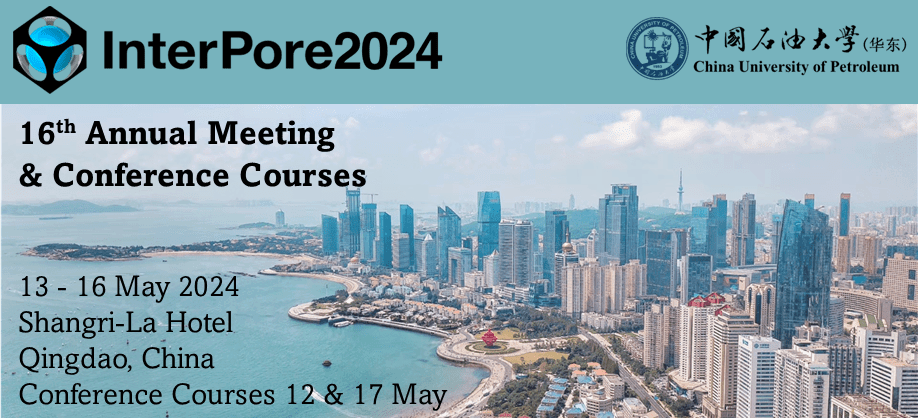Speaker
Description
Foams are dispersions of gas bubbles within a liquid. They can be generated in porous and fractured media during co-injection of two fluids in the presence of surfactants that stabilize foam bubbles. Since foam viscosity is much higher than the constituent gas and liquid phases, they are used for diverting fluid to less permeable subsurface formations in applications such as enhanced oil recovery or carbon dioxide storage. Pore geometry, thermodynamic conditions, molecular structure and behavior of stabilizing agents such as surfactants or nanoparticles near fluid/fluid or fluid/solid interfaces are some important factors affecting stability and regeneration of foam in porous media.
We present the first 2D and 3D results from a direct pore-scale modeling of foam in porous media. We use free-surface lattice Boltzmann method adapted for simulation in an imaged realistic fracture geometry. All geometries are available from Digital Rocks Portal, https://www.digitalrocksportal.org/. The model couples Navier-Stokes equation for fluid flow between bubbles and diffusion of dissolved gas within liquid into bubbles, and is adapted from LBfoam (https://github.com/mehdiataei/LBfoam) open solver that originally does not account for porous medium. To our knowledge, this is the first 3D model with the foam flow driven by pressure gradient in a fractured porous medium, gas diffusion through liquid phase and the interface changes as a result of both aforementioned mechanisms at pore scale. The bubble morphological variations we observe are caused by bubble coalescence, splitting and merging and we quantify them using morphological parameters (Minkowski functionals) in different liquid viscosity, pressure gradient, surface tension and temperature conditions.
| Country | USA |
|---|---|
| Conference Proceedings | I am not interested in having my paper published in the proceedings |
| Acceptance of the Terms & Conditions | Click here to agree |




.jpg)
